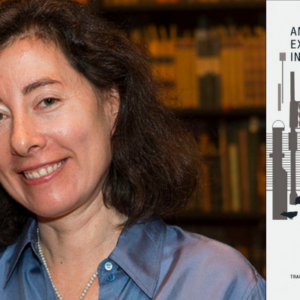
How Political Will This Sunday's Oscars Get?
A Brief History of Actors Getting Political at Awards Shows
The 89th Academy Awards will take place this weekend, and the smart money says that it’s going to be a pretty political evening. I tend to make fun of awards shows—they’re bloated, self-congratulatory, and often extremely boring except for the gowns—but a lot of people watch them, and therefore they can be opportunities for real political speech and action. Last year 34.4 million people watched the Oscars, and that was a near-record low.
Plus, Hollywood awards shows, and the Academy Awards in particular, have a long history of getting political. In 2017, unsurprisingly, the awards season so far has been particularly political, and the Oscars is already looking like it’s going to continue in that vein. The UTA has cancelled their annual party and replaced it with a pro-immigrant, pro-refugee rally and promised to donate $250,000 to the American Civil Liberties Union and the International Rescue Committee.
But are awards shows really the place for politics? John Irving, who himself made headlines at the 2000 Academy Awards when he praised Miramax’s courage for making The Cider House Rules, recently called for anyone who has something to say at this year’s awards to say it, regardless of “protocol”: “Here’s the opportunity that Oscar winners are given: a brief moment with a global audience. It’s a small statuette, but the first time you hold it, you’re surprised by how heavy it is. What might feel heavier to Oscar winners, this year, is that we do represent (however fleetingly) a community of artists. In our community, tolerance of intolerance is unacceptable. President Trump’s intolerance is glaring. Trump isn’t worrying about presidential protocol.”
For a little background (and inspiration), a brief history of celebrities using their award to make a political statement.
Meryl Streep on Trump at the 2017 Golden Globes
The most recent example of this is Meryl Streep’s acceptance speech for the Cecil B. DeMille Award at last month’s Golden Globes, in which she discussed the values of Hollywood as a sphere populated by “a bunch of people from other places” and passionately rebuked Donald Trump:
But there was one performance this year that stunned me. It sank its hooks in my heart. Not because it was good; there was nothing good about it. But it was effective and it did its job. It made its intended audience laugh, and show their teeth. It was that moment when the person asking to sit in the most respected seat in our country imitated a disabled reporter. Someone he outranked in privilege, power and the capacity to fight back. It kind of broke my heart when I saw it, and I still can’t get it out of my head, because it wasn’t in a movie. It was real life. And this instinct to humiliate, when it’s modeled by someone in the public platform, by someone powerful, it filters down into everybody’s life, because it kinda gives permission for other people to do the same thing. Disrespect invites disrespect, violence incites violence. And when the powerful use their position to bully others we all lose.
Trump, of course, responded with none of her grace or empathy.
Leonardo DiCaprio on Climate Change at the 2016 Academy Awards
Climate Change shouldn’t even be a political issue, considering it’s scientific fact, but hey, this is the world we live in. While accepting his Oscar for Best Actor in The Revenant, he finished his speech this way:
Making The Revenant was about man’s relationship to the natural world. A world that we collectively felt in 2015 as the hottest year in recorded history. Our production needed to move to the southern tip of this planet just to be able to find snow. Climate change is real, it is happening right now. It is the most urgent threat facing our entire species, and we need to work collectively together and stop procrastinating. We need to support leaders around the world who do not speak for the big polluters, but who speak for all of humanity, for the indigenous people of the world, for the billions and billions of underprivileged people out there who would be most affected by this. For our children’s children, and for those people out there whose voices have been drowned out by the politics of greed. I thank you all for this amazing award tonight. Let us not take this planet for granted. I do not take tonight for granted. Thank you so very much.
Patricia Arquette on Equal Pay at the 2015 Academy Awards
In 2015, Patricia Arquette wrapped up her acceptance speech for her Oscar (for Best Supporting Actress in Boyhood) with this call to action:
To every woman who gave birth, to every taxpayer and citizen of this nation, we have fought for everybody else’s equal rights, it’s our time to have wage equality once and for all, and equal rights for women in the United States of America.
In an interview after her speech, she elaborated:
It is time for women. Equal means equal. And the truth is, the older women get, the less money they make. The more children—the highest percentage of children living in poverty are female-headed households. And it’s inexcusable that we go around the world and we talk about equal rights for women in other countries and we don’t—one of those Superior Court justices said two years ago in a—in a law speech at a university, We don’t have equal rights for women in America and we don’t because when they wrote the Constitution, they didn’t intend it for women. So, the truth is, even though we sort of feel like we have equal rights in America, right under the surface, there are huge issues that are applied that really do affect women. And it’s time for all the women in America and all the men that love women, and all the gay people, and all the people of color that we’ve all fought for to fight for us now.
This combined commentary drew a lot of praise but also critique, prompting many to point out Arquette’s apparent divisiveness (lots of gay people and people of color are also women, etc.) and the suggestion that “everybody else’s equal rights” have been taken care of.
Sean Penn on Gay Rights at the 2009 Academy Awards
When Sean Penn won a richly-deserved Best Actor Oscar for Milk, protesters waved signs outside, attacking gay marriage and, bizarrely, the late Heath Ledger (who played a gay man that one time, and so is now supposedly in hell). Sean Penn was not impressed.
Thank you. Thank you. You commie, homo-loving sons-of-guns! I did not expect this, but I, and I want it to be very clear that I do know how hard I make it to appreciate me, often. … For those who saw the signs of hatred as our cars drove in tonight, I think that it is a good time for those who voted for the ban against gay marriage to sit and reflect and anticipate their great shame and the shame in their grandchildren’s eyes if they continue that way of support. We’ve got to have equal rights for everyone. And there are, and there are these last two things. I’m very, very proud to live in a country that is willing to elect an elegant man president and a country who, for all its toughness, creates courageous artists, and this is in great due respect to all the nominees, but courageous artists who, despite a sensitivity that sometimes has brought enormous challenge, Mickey Rourke rises again and he is my brother. Thank you all very much.
Michael Moore on the War in Iraq at the 2003 Academy Awards
When Michael Moore won the Oscar for Documentary Feature for Bowling for Columbine at the 75th Academy Awards, he took aim at President Bush.
I’ve invited my fellow documentary nominees on the stage with us and we would like to … they are here in solidarity with me because we like non-fiction. We like non-fiction, and we live in fictitious times. We live in the time where we have fictitious election results that elects a fictitious president. We live in a time where we have a man sending us to war for fictitious reasons. Whether it’s the fictition [sic] of duct tape or fictitious [sic] of orange alerts, we are against this war, Mr Bush! Shame on you, Mr Bush, shame on you. And any time you got the Pope and the Dixie Chicks against you, your time is up. Thank you very much.
There are a surprising number of boos and jeers, and also some shouts of approval. The camera lands on Nicole Kidman with her arms crossed tightly across her chest. Things certainly have changed.
Richard Gere on Tibet at the 1993 Academy Awards
In 1993, Richard Gere was supposed to just come out and politely give Luciana Arrighi and Ian Whittaker the Oscar for Art Direction for their work on Howards End. Instead, he got a little sidetracked.
I had a thought about something, actually, before I came out. I want to share it with you. It’s going to be short. I was really struck by this idea that there were one billion people watching this thing. It’s astonishing—one billion people watching. And I was curious about what countries this was actually going to. And it is in fact being seen in China right now. And the first thought that came to me was, I wondered if Deng Xiaoping is actually watching this right now, with his children and his grandchildren, and with the knowledge that—that—that—what a horrendous, horrendous human rights situation there is in China, not only towards their own people but to Tibet as well. And when it was this kind of… if something miraculous, really kind of movielike, could happen here, where we could all kind of send love and truth and a kind of sanity to Deng Xiaoping right now in Beijing, that he will take his troops and take the Chinese away from Tibet and allow people to live as free independent people again. So, thought… We send this thought—we send this thought out. Send this thought. Anyhow, [and here Gere switches to what’s there on the cue cards] art direction demands taste, talent, and the diplomacy to convince producers they also have taste and talent…
Susan Sarandon and Tim Robbins on the US Haitian internment camp at the 1993 Academy Awards
Well, the 65th Academy Awards was a big year for rogue presenters. Susan Sarandon and Tim Robbins showed up to present the Oscar for Film Editing (to Unforgiven) wearing red ribbons, and began this way:
Robbins: In the spirit of the red ribbons being held here, we’d like to call attention to 266 Haitians that are being held in Guantanamo Bay by the United States Government. Their crime: testing positive to the HIV virus.
Sarandon: On their behalf, and all the people living with HIV in this country, we’d like to ask our governing officials in Washington to admit that HIV is not a crime and to admit these people into the United States.
Robbins: Which brings us, of course, to editing.
Oscar producer Gil Cates was furious with Sarandon and Robbins, as well as with Gere. “For a nominee to use his or her minute to say something is probably understandable,” he said. “For someone like Barbra Streisand to talk about the theme of the show as she did is understandable. (But for) someone who I invite to present an award to use that time to postulate a personal political belief I think is not only outrageous, it’s distasteful and dishonest… Does anyone care about Richard Gere’s comments about China? It’s arrogant.”
Vanessa Redgrave on Zionist hoodlums and fascism at the 1977 Academy Awards
When Vanessa Redgrave was nominated for Best Actress in a Supporting Role for her performance in Julia, a film about two women who fought against the Nazis (her character dies doing it), members of the Jewish Defense League protested, picketing the Awards and even burning her in effigy. Why? Well, because that year, she had also funded and appeared in a documentary film called The Palestinian and her general pro-Palestinian politics. When she won in her category, Redgrave said:
My dear colleagues, I thank you very, very much for this tribute to my work. I think that Jane Fonda and I have done the best work of our lives and I think this was in part due to our director, Fred Zinnemann. And I also think it’s in part because we believed and we believe in what we were expressing. Two, out of millions, who gave their lives and were prepared to sacrifice everything in the fight against fascist and racist Nazi Germany. And I salute you and I pay tribute to you and I think you should be very proud that in the last few weeks you’ve stood firm and you have refused to be intimidated by the threats of a small bunch of Zionist hoodlums whose behavior is an insult to the stature of Jews all over the world and to their great and heroic record of struggle against fascism and oppression. And I salute that record, and I salute all of you for having stood firm and dealt a final blow against that period when Nixon and McCarthy launched a worldwide witch hunt against those who tried to express in their lives and their work the truth that they believed in. I salute you, and I thank you, and I pledge to you that I will continue to fight against anti-Semitism and fascism. Thank you.
Responses were mixed, but not long after she left the stage, Paddy Chayefsky got up to present an award and chastised her: “Before I get on to the writing awards, there’s a little matter I’d like to tidy up, at least if I expect to live with myself tomorrow morning. I would like to say, personal opinion, of course, that I’m sick and tired of people exploiting the occasion of the Academy Awards for the propagation of their own personal political propaganda. I would like to suggest to Miss Redgrave that her winning an Academy Award is not a pivotal moment in history, does not require a proclamation and a simple “Thank you” would have sufficed.” Responses to that were mixed too.
Marlon Brando & Sacheen Littlefeather on the American Indian Movement at the 1973 Academy Awards
This one is super famous: in 1973, Marlon Brando boycotted the Academy Awards, and instead sent Native American actress and activist Sacheen Littlefeather to refuse his Best Actor Oscar—which he’d won for The Godfather—on account of, as she put it, “the treatment of American Indians today, by the film industry” [here she gets some boos and some claps, and has to collect herself for a minute] “and on television and movie reruns, and also with recent happenings at Wounded Knee. I beg at this time that I have not intruded upon this evening, and that we will, in the future, our hearts and our understandings will meet with generosity.” She she said she couldn’t read the whole speech that Brando had written because of time constraints, but here it is, and it’s pretty good: “What kind of moral schizophrenia is it that allows us to shout at the top of our national voice for all the world to hear that we live up to our commitment when every page of history and when all the thirsty, starving, humiliating days and nights of the last 100 years in the lives of the American Indian contradict that voice?” etc.
Years later, Littlefeather explained: “Marlon Brando was an excellent strategist, and he knew that that year, the Academy Awards would be broadcast via satellite, to millions of people all over the world. The FBI had put a news blackout on Wounded Knee, so that people couldn’t hear from [the activists]. This was a way to get around that. When people saw that broadcast, all hell broke loose. It put a lot of attention on the FBI’s actions.”
Emily Temple
Emily Temple is the managing editor at Lit Hub. Her first novel, The Lightness, was published by William Morrow/HarperCollins in June 2020. You can buy it here.



















